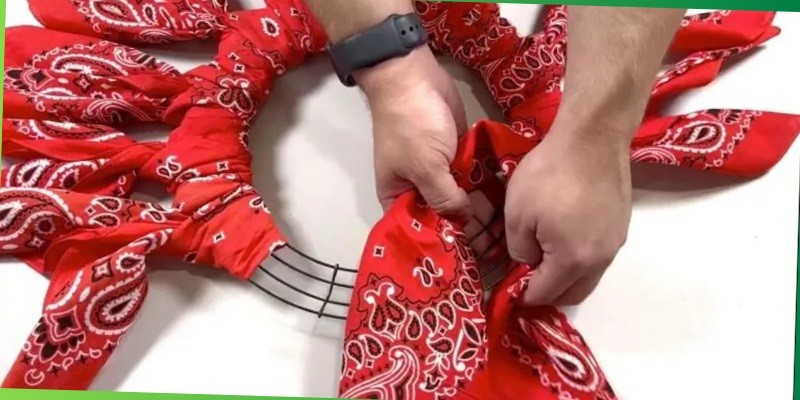Last Updated on June 6, 2023
Parental alienation syndrome (pas) is a term used to describe a manipulation tactic where one parent turns their child against the other parent. Pas can negatively impact the child’s mental health, leading to feelings of anger and rejection towards the targeted parent.
This type of behavior often results in a bitter and contentious custody battle between parents. The alienating parent may use actions like speaking negatively about the other parent, preventing the child from communicating with them, or diminishing their importance in the child’s life.
It is essential to address pas quickly before the damage becomes permanent. In this article, we will take a closer look at parental alienation syndrome and how it can impact families.

Credit: www.allentownfamilylaw.com
Defining Parental Alienation Syndrome (Pas)
Giving The Basic Definition And Characteristics Of Pas
Parental alienation syndrome (pas) is a situation where one parent manipulates their child or children against the other parent. The parent poisons the child’s mind, painting a picture of the other parent as a bad person and capable of committing evil acts.
This manipulation can lead to the child rejecting or hating the targeted parent completely. Here are some characteristics of pas:
- The child shows an extreme level of disrespect for the targeted parent.
- The child fabricates stories or makes accusations about the targeted parent that are not true.
- The child shows no guilt about being hostile to the targeted parent.
- The child has a ‘parroting’ attitude, as they repeat words and phrases used by the alienating parent when talking about the targeted parent.
- The child refuses to participate in parenting time or visits with the targeted parent.
- The child shows no empathy or gratitude towards gifts or attention from the targeted parent.
If you suspect that your child may be experiencing pas, it’s essential to speak with a professional therapist who can help you determine the best course of action to remedy the situation. If left unresolved, pas can cause psychological damage to the child and lasting problems between the targeted parent and child.
Indicators And Symptoms Of Parental Alienation
Parental alienation syndrome (pas) is a serious matter that has detrimental effects on both parents and children. It is a heartbreaking situation where one parent tries to damage the relationship between the child and the other parent. The effects can be long-lasting, making it crucial to recognize the symptoms and signs of pas.
Discussing The Various Signals And Red Flags To Watch For When Identifying Pas
When identifying parental alienation syndrome, many indicators and symptoms can be observed. Here are some critical signals to watch for:
- Denigration of the targeted parent: This symptom is a clear indication of pas, where the alienating parent speaks negatively about the targeted parent and blames them for any problems.
Example: “your dad/mom is always late and never shows up on time,” “your other parent is selfish and doesn’t care about anyone else. ”
- Interference with parent-child relationship: This symptom involves the alienating parent preventing or causing obstacles in the child’s communication or relationship with the targeted parent.
Example: withholding visitation, phone calls or refusing to allow the child to spend time with the other parent or manipulating the child to dislike the targeted parent.
- False allegations of abuse: This symptom involves the alienating parent making untrue claims that the targeted parent has abused either them or the child.
Example: making accusations of sexual or physical abuse that have no foundation.
- Negative body language: This symptom involves the child’s body language and language, which indicates a lack of affection or respect towards the targeted parent.
Example: rolling their eyes, sighing when the targeted parent is mentioned, or failing to respond to communication attempts by the targeted parent.
- Splitting: This symptom involves the child supporting the alienating parent and completely rejecting the targeted parent, regardless of the circumstances.
Example: refusing to have a conversation or visit with the other parent, or speaking ill of them.
It is important to note that experiencing any one of these symptoms doesn’t necessarily indicate parental alienation syndrome. However, if multiple symptoms are observed, it might be a signal of an underlying problem. Early intervention and addressing issues could avert long-term harm to the child.
The Impact Of Parental Alienation On Children And Adults
Parental alienation syndrome (pas) is a familiar but damaging concept that has become more common in modern-day family law. It occurs when one parent attempts to turn their child or children against the other parent. Pas is not recognised by the dsm-5 or any other professional psychiatric body, although it is still a controversial topic.
We shall take a closer look at the impact of parental alienation on children and adults.
Highlighting The Significant Effect Of Pas On Children And The Involved Parent(S)
The effects of pas on children and the parents involved can be long-lasting and severe. Below are a few key points:
- It leads to the irreparable loss of a healthy parent-child relationship.
- Children isolated from one of their parents can have reduced cognitive and emotional development and poor mental health.
- Guilt, confusion, and depression can result from the manipulation of a child’s feelings towards one of their parents.
- The parent who is denied contact with their children is also susceptible to depression, anxiety, and suicidal ideation.
Explaining How The Court System Looks At Pas During Custody Battles
Parental alienation has become an increasingly prevalent issue in family law proceedings in recent years. Here’s what you should know:
- It is challenging to diagnose parental alienation syndrome in court cases.
- Courts can order custody evaluations and appoint child custody evaluators or guardians ad litem to investigate the case’s circumstances.
- Some courts view parental alienation as a form of emotional abuse and the alienating parent can be penalised.
- The court may order supervised parenting time or a parenting plan that promotes a healthy relationship between the child and both parents.
Providing Some Case Studies As Evidence
To understand the real-life consequences of parental alienation, the following case studies can be of help:
- In a case study published in the british psychological society, a father was accused of molesting his daughter by the mother during divorce proceedings. However, the court later discovered that the accusations were untrue and that the mother had deliberately alienated the child from her father.
- In another case study published by jaffe, ashbourne, & mamo in the canadian journal of psychiatry, a parent deliberately undermined the relationship between the other parent and their child by making negative comments and using the children as messengers between the parents. This resulted in the alienated parent’s depression, anxiety, and a breakdown of a healthy parent-child relationship.
To summarise, parental alienation is a severe issue that can lead to long-lasting emotional and psychological damage to children and alienated parents. The court system demands evidence to support such allegations of parental alienation in custody battles, and parents must learn to put their children’s needs before their conflict.
Factors That Lead To Parental Alienation
Parental alienation syndrome (pas) is a type of mental disorder that commonly occurs between feuding parents in the aftermath of a divorce or separation. In essence, pas materializes in situations where one parent manipulates the children in a bid to disrupt, obstruct, or hurt their relationship with the other parent.
Pas can lead to terrible feelings of confusion, stress, and trauma in children, leading to a long-term detrimental effect on their mental well-being, social development, and academic success. To help understand pas further, we will explore the factors leading to its development.
Highlighting Common Factors That Contribute To The Development Of Pas
Here are the common factors that can contribute to the development of pas:
- High-conflict separation/divorce: Divorcing/ separating couples who are highly conflicted increase the chances of their children experiencing pas.
- Inadequate co-parenting skills: Co-parenting requires immense skills for smooth sailing and preventing pas from developing between parents and children. A lack of co-parenting abilities can facilitate the development of pas in children.
- Parental hostility: Parents who exhibit traits of anger, aggression, hostility, or display contemptuous behaviors towards their former partners increase the potential for their children experiencing pas.
- Poor boundaries: Inadequate boundaries where parents use children as messengers, spilling secrets or confiding adult issues can cause a child to feel pressured, leading to pas.
- Possessive or controlling parenting habits: Parents who use manipulative tactics, enforce strict loyalty, or behave in a possessive manner towards their children often cause chasms of mistrust towards the other parent, leading to pas.
Explaining The Role Divorce And Separation Play In Pas Development
The factors leading to the development of pas usually revolve around high-level conflict situations involving separation and divorce. Several studies have shown a strong correlation between pas and family transition created by separation and divorce. Family separation and divorce entail significant economic and social changes, and this can cause stress for all parties involved.
However, children become more susceptible to pas when conflict exists between separated parents. Conflict often emanates from parents fighting over custody, access, and values. Furthermore, when one partner initiates the separation or divorce, the ex-partner may retaliate by manipulating the children.
It is essential to realize that parental alienation syndrome (pas) is a sensitive issue that requires careful attention to avoid inadvertently causing harm to children. Understanding the factors that give rise to pas is crucial to preventing its development. As parents, it is essential to strive to maintain healthy boundaries for the sake of our children’s mental well-being.
Psychological Impact On Children
What Is Parental Alienation Syndrome?
Divorce or separation can be challenging for everyone involved, especially for children. In some cases, one parent may try to turn the child against the other parent deliberately. The psychological impact of separation on children can have disastrous effects in such situations leading to parental alienation syndrome (pas).
Discussing The Psychological Impact Of Separation On Children
The psychological impact of separation on children can have long term effects on their health and wellbeing. Children may develop mild to severe psychological difficulties due to their exposure to a high-conflict environment. Some possible psychological effects of separation on children are:
- Fear and apprehension of abandonment
- Anxiety and distress in daily living
- Low self-esteem
- Anger and aggression
- Depression and mood swings
- Alienation from one or both parents
Highlighting How Parental Behaviour Influences The Development Of Pas
Parental behaviour plays the most crucial role in developing parental alienation syndrome. When parents engage in negative behaviour, such as derogatory remarks, criticism and false accusations towards one another or the child, the child may feel pressured to choose sides.
This pressure to choose a parent can cause the child to develop an unnatural attitude towards the other parent, leading to parental alienation syndrome – a severe psychological condition. Parental behaviour impacts the child and can affect how they perceive their relationship with both parents.
Some ways parental behaviour can lead to pas are:
- False promises made to the child
- Influencing the child against the other parent
- Making derogatory remarks about the other parent
- Denying the child the liberty to spend time with the other parent
- Ignoring the child’s emotional needs
How The Wider Family Structure May Contribute To Pas
Besides parental behaviour, the wider family structure can also contribute to the development of parental alienation syndrome. Parental alienation syndrome is usually caused due to an order of negative events that eventually lead to it. The wider family structure, such as grandparents or aunts and uncles, can also become a part of the negativity against one parent and start influencing the child’s behaviour towards that parent.
This negativity can lead to further resentment and cause the child to isolate the other parent.
Some ways the wider family structure can contribute to pas are:
- Using loud or aggressive language when talking about the other parent
- Filling the child’s mind with negative opinions about the other parent
- Telling the child not to see the other parent
- Try to create tension between the child and the other parent
- Making the child feel guilty for wanting to see or spend time with the other parent.
Parental alienation syndrome is a severe psychological condition that can develop due to negative behaviours and an inhospitable environment created by one or more parents towards the other parent. Early intervention and support from qualified professionals can help children overcome the adverse psychological effects of parental alienation syndrome.
Social Psychology And Cultural Factors
Parental alienation syndrome (pas) is a term first coined by psychiatrist richard gardner to define a phenomenon where a child develops an unjustified aversion or hostility toward one parent, following an intense and acrimonious separation or divorce. The alienated parent is often made to feel like an enemy, excluded from their child’s life.
Pas is still a controversial topic, but it’s important to understand its underlying social and cultural factors to prevent it from happening.
Analyzing The Underlying Social And Cultural Factors That Contribute To Pas Development
Parental alienation syndrome is the result of many factors, some of which are social and cultural. Understanding these underlying factors can help us develop better strategies to prevent or overcome pas.
- The societal belief that mothers are better caregivers is one of the most significant factors contributing to pas. It’s because of this that non-custodial fathers are often on the receiving end of parental alienation.
- The difficulties inherent in shared parenting after a divorce can be a contributing factor. When parents live in different households and follow different rules, it can be challenging to maintain consistency and continuity, leading to disagreements, and the child can take advantage of that.
- The social stigma surrounding divorce can lead to the alienation of the separated parent. When one parent is seen as the cause of the divorce, that parent gets excluded from the child’s life.
Discussing How The Social Construct Of “Us Vs. Them” Might Increase Pas Occurrence
In many cases of pas, we can see the child choosing sides and creating the dichotomy of “us vs them. ” This often occurs because of the social construct of “us vs. Them. ” The idea that we belong to an in-group and are hostile to outsiders is present in many cultures, leading to the formation of in-groups versus out-groups.
- When the alienating parent treats the child like an ally in their own grievances, the child begins to see one parent as a safe haven and the other as a source of conflict.
- When the child becomes too involved in the conflict between the parents, they can develop a significant sense of loyalty to one parent and a correspondingly negative view of the other.
- The more strongly the child identifies with one parent, the more likely they’ll begin to reject the other parent, leading to pas.
Understanding the social and cultural factors that contribute to pas is a critical step toward prevention. By becoming aware of the social stigmas that exist, parents can take steps to ensure equal parenting time and avoid alienating the other parent.
Strategies such as therapy and mediation can also help parents learn to communicate better, reduce conflict and prevent pas from developing in the first place. It is paramount that the society shifts its views on divorce and shared parenting to put the child’s interests first.
Therapy And Interventions
Parental alienation syndrome, commonly known as pas, is a complex phenomenon in which a child’s relationship with one of the parents is damaged through various manipulative behaviours by the other parent. This destructive behavior by one parent can cause considerable distress on the child, and, if severe enough, can negatively affect the child’s mental health in the long-term.
While it can be challenging to treat pas, there are several therapy techniques and intervention approaches that therapists use to minimize the child’s psychological damage. Below are the essential ways therapists use to deal with pas.
Overviewing The Current Therapy Techniques Being Used For Treating Pas
Several therapeutic techniques have been utilized to address pas effectively. These include:
- Cognitive behavioural therapy (cbt): This type of therapy is focused on restructuring the child’s mindset. With cbt, therapists challenge the child’s negative thoughts and help them to develop coping mechanisms
- Psychodynamic therapy: This is a form of talk therapy that aims to increase self-awareness in the child. Therapists encourage children to explore their past and unresolved conflicts which may result in the development of pas
- Family therapy: This is an intervention that seeks to address the underlying issues affecting the whole family. Parents and children attend therapy sessions together, which can help rebuild a healthier family dynamic and improve the relationship between the child and the alienated parent.
Discussing The Various Interventions Approach Therapists Take
There is no “one size fits all” approach to treating pas. Several interventions can be used based on the severity of the case. These approaches include:
- Reunification therapy: This is an intervention that aims to rebuild the relationship between the child and the alienated parent. The therapist works with the child and the estranged parent to rebuild the relationship dynamics.
- Parental coordination: This is an intervention that involves a trained mental health professional who acts as a mediator to resolve issues between parents. The coordination can help decrease the child’s loyalty concerns.
- Parent training: This approach focuses on equipping parents with parenting skills to better handle their children’s needs in a pas scenario. This approach can help prevent potential recurrence of pas patterns in the family.
Including Expert Opinions On Successful Treatment Strategies
There is a wide array of contradictory research about the effectiveness of different treatment strategies. However, the following strategies have shown positive results;
- Consistent counselling and psychotherapies to help the child challenge the alienator’s negative messages convincingly.
- Encouraging communication when possible may bring about a more stable and productive relationship between both parents and the child.
- Utilizing legal intervention such as family court or collaborating with legal assistance may become necessary in serious pas cases
The best way to treat parental alienation syndrome involves a combination of various therapy and intervention approaches. It is essential to involve both parents, the child(ren) to address the underlying causes of pas carefully. Therapy is the foundation of healing for the child and parental reunification.
Legal Solutions
Parental alienation syndrome (pas) is a heartbreaking concept and one that can have long-lasting effects, not just on the individuals involved but also society as a whole. Pas is a situation that arises when one parent works to turn a child against the other parent, and it can have serious consequences on the child’s mental well-being.
Once a custody battle goes through the court system, certain legal solutions can be applied, and they can have a significant impact on the outcome. Let’s take a closer look at the various legal solutions for pas.
Providing An Overview Of Current Legal Solutions
Here is a brief overview of the current legal solutions for pas:
- Court mandated parental education programs: This solution involves both parents attending parental education classes mandated by the court. These classes cover co-parenting tips and the negative effects of alienation on young children.
- Court-appointed counselor or therapist: When courts recognize pas, they typically appoint a knowledgeable therapist or counselor who can work with the child and both parents. They ensure that the child’s welfare is top priority and that neither parent is contributing to the alienation behavior.
Highlighting The Legal Aspects Common In The Custody Battle
Courts handle custody battles in a variety of ways, always with the child’s best interests in mind. Below are a few legal considerations taken in custody battles involving pas:
- Custody evaluation: Once either parent believes that their former partner is alienating their child, one can request a custody evaluation. A custody evaluation involves an outside expert in family law investigating an entire family’s living arrangements and conduct in custody cases.
- Psychological evaluation: Should either party suggest that the other parent, child or both suffer from psychological trauma, courts often require a psychological evaluation. This evaluation is thorough and can take weeks to complete, giving the doctor time to consider all available information before giving their diagnosis.
Shedding Light On The Impact Of Pas On Custody Battles
Pas has a severe effect on custody battles if left unchecked. The following key implications outline the impact of pas in custody battles:
- Impact on child: Children negatively impacted by pas can develop depression, substance abuse, and other mental health concerns.
- Impact on parent-child relationship: Children who succumb to alienation will have long-lasting effects on their relationship with the alienated parent, which they have to live with for their entire lives.
- Ongoing court involvement: If not recognized or treated, pas can become an ongoing part of custody battles, with judges prescribing a variety of legal solutions, which can cause significant legal expenses.
While it may be in the best interest of one parent, pas can have serious long-term implications on children and their ability to form healthy relationships later in life. The legal solutions are in place not just to ensure that custody battles are resolved in a timely manner, but also to protect the mental health and well-being of children involved.
Frequently Asked Questions Of What Is Parental Alienation Syndrome?
What Is Parental Alienation Syndrome?
Parental alienation syndrome (pas) is a term used to describe the psychological effects on children who are manipulated or brainwashed by one parent to turn against the other parent.
What Causes Parental Alienation Syndrome?
Parental alienation syndrome can be caused by one parent’s severe influence to manipulate or brainwash the child against the other parent, often due to conflicts between divorced parents.
What Are The Signs And Symptoms Of Parental Alienation Syndrome?
The child constantly makes negative comments about one parent, has no memory of positive experiences with that parent, and may believe the other parent is perfect.
Can Parental Alienation Syndrome Be Treated?
Yes, parental alienation syndrome can be treated through counseling and therapy to help both the alienated parent and child rebuild their relationship.
What Are The Long-Term Effects Of Parental Alienation Syndrome On Children?
Children who experience parental alienation syndrome may struggle with relationship issues and have difficulty trusting others, leading to long-term negative effects on their future relationships.
Conclusion
Parental alienation syndrome is a complex issue that involves the manipulation of a child’s emotions and relationship with the other parent. The signs and symptoms of this syndrome are often subtle, but they can have long-lasting effects on the child’s emotional and mental well-being.
Parents who are concerned about the possibility of parental alienation should seek the advice of a qualified mental health professional who can provide guidance on how to best address the issue. It is important to remember that parental alienation is not a one-sided issue and that both parents should be willing to work together to support their child’s healthy development and well-being.
By recognizing the signs and symptoms of parental alienation and taking proactive steps to address the underlying issues, parents can help ensure that their child grows up in a healthy and supportive environment.







